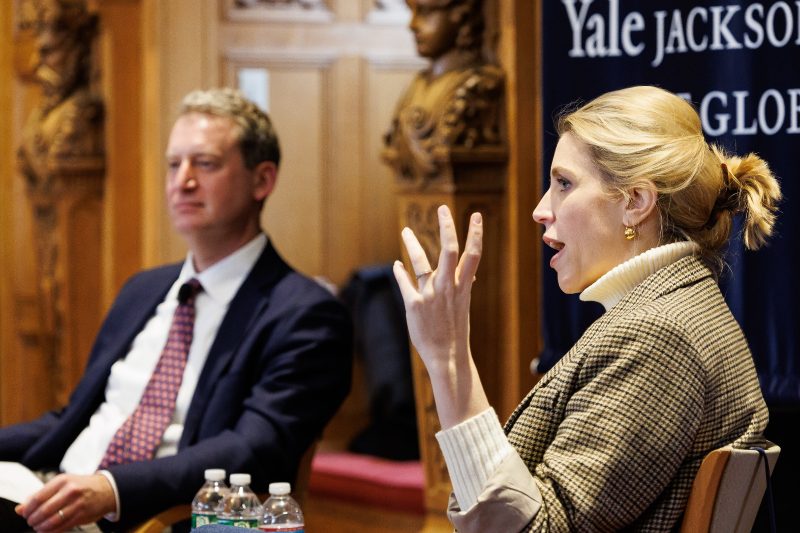From Syria to Myanmar, Clarissa Ward ’02 — chief international correspondent for CNN — has been on the front lines of global conflict for nearly a decade. For most of the past year, she’s been on the ground in Ukraine, reporting out the devastating attacks from Russian forces and the fierce resistance of the Ukrainian people.
Speaking to an audience at the Jackson School of Global Affairs on February 9, Ward shared stories of that resolve, including a memorable encounter with an elderly Ukrainian woman she witnessed crafting Molotov cocktails in her garden, intended for use against Russian soldiers.
“Russia has genuinely not anticipated the grit and resolve Ukraine has shown. I don’t think anyone could have anticipated their strength,” said Ward. “Because the invasion was so counter to rational military strategy, I don’t think the majority of Ukrainians believed an invasion was imminent until it happened, but they’ve risen up to meet the moment.”
But Ward cautioned against getting too caught up in these stories; the costs of war have been high, including an exhausted and depleted Ukrainian military.
“Victory is grim,” said Ward. “In our exuberance, we can’t forget the horrifying cost.”
And while Ukraine has held strong against invading forces, Ward believes the Russians have begun to learn from their previous mistakes and it would be “dangerous to underestimate them.” Russia also benefits from what she called “the meat grinder” — a seemingly endless supply of Russian soldiers forced into military action and propped up by propaganda.
Ward has covered Russia extensively during her career, including the poisoning of Russian opposition leader [and former Yale World Fellow] Alexei Navalny in 2020. She was also embedded in Syria during its civil conflict and, last year, was in Kabul as U.S. troops withdrew from Afghanistan.
Reporting death and destruction from the ground “is not something you can be naturally prepared for,” said Ward. There have been moments when she questioned whether she could continue doing her job and whether her work was making a difference.
“I can’t change the world — and that’s not my job as a journalist,” she said. “It’s my job to tell stories, to illuminate a problem, to hold people accountable, and to do it all in a way so that people will listen and care.”
